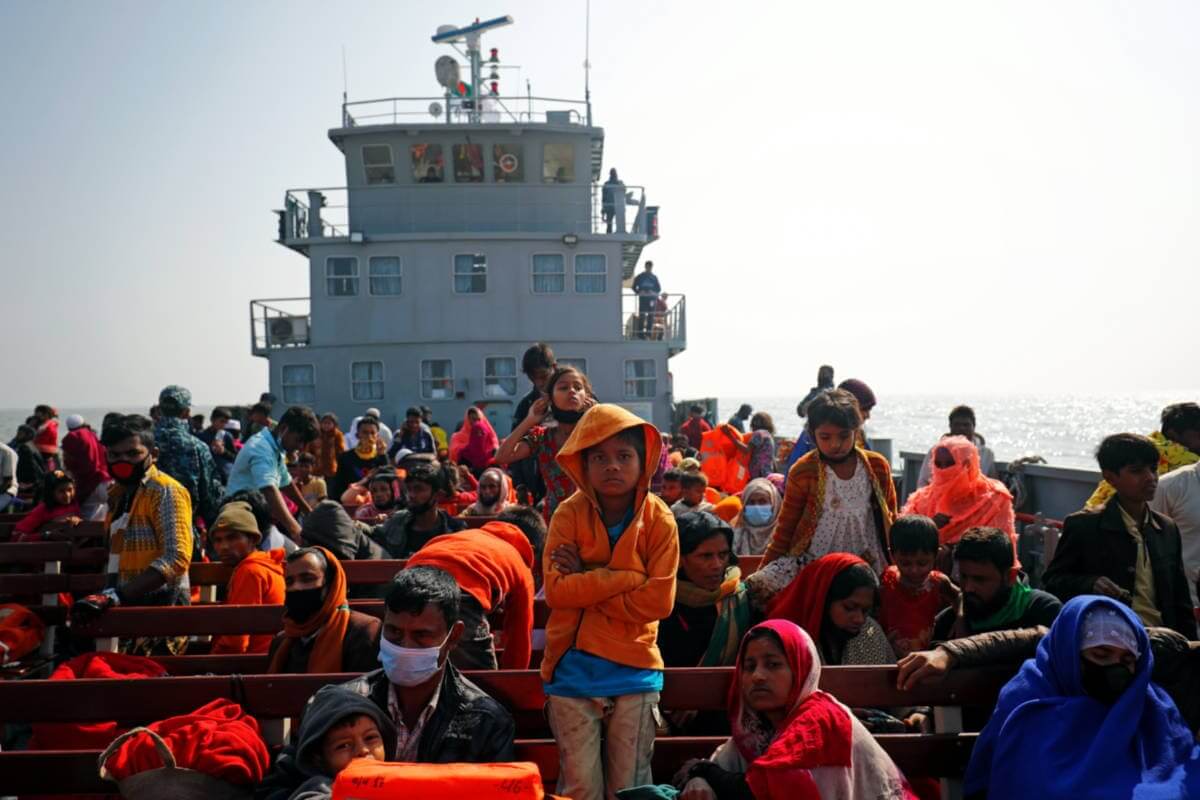On Friday, the Indian coast guard spotted a boat with 81 Rohingya Muslims in the Andaman Sea. A statement by the officials said that the refugees had departed from Cox’s Bazar on February 11 in an attempt to escape from the camp to Malaysia or Thailand.
Initially, the boat housed five women and eight girls, along with 21 men and five boys. However, merely four days after they set sail, the engine of the boat failed, leaving the passengers without any food or water. Due to this, most of the survivors were unwell and suffering from extreme dehydration; eight passengers died during the journey.
An Indian coast guard official called this a “humanitarian crisis” and assured that their team was doing all that they could to save their lives. The 81 survivors were also supplied with food, medicine, and clothing from the Indian side.
The United Nations High Commissioner for Refugees (UNHCR) raised alarm about the missing boat. A press release said, “We understand that around 47 of the occupants of the boat are in possession of ID cards issued to them by UNHCR office in Bangladesh stating that they are displaced Myanmar nationals.”
Since the boat was found by the Indian Coast Guard, the country’s Foreign Ministry has been urging Bangladesh to ensure the “safe and secure repatriation” of the Rohingya refugees. However, Bangladesh has refused to take responsibility for the refugees that fled from its own refugee camp. This disagreement has the potential to instigate a diplomatic rift between the two countries, both of whom face pressures from the international community to rescue the refugees expeditiously.
According to a statement by the Bangladeshi Foreign Ministry, the vessel was found 1,700 kilometres from Bangladesh and 147 kilometres from the Andaman and Nicobar Islands in India. Therefore, it said, “Other states, particularly those on whose territorial water the vessel has been found, bear the primary responsibility and they should fulfil their obligation under international law and burden-sharing principle.” Further, Bangladeshi Foreign Minister A.K. Abdul Momen said that since the occupants of the boat were not Bangladeshi nationals, they had “no obligation to take them.” However, while India houses around 200,000 refugees, it is not a signatory of the 1951 Refugee Convention, an international agreement that establishes the duties and responsibilities of states with respect to refugees. Hence, it cannot be obligated to undertake responsibility for the refugees under this convention.
Over one million Rohingya refugees, who escaped from the deadly crackdown by Myanmar’s military in 2017, are currently being housed in Bangladesh. However, the Bangladeshi government’s decision to relocate the refugees at Cox’s Bazar camp, from where the 90 refugees set sail, has been criticised. The camp faces severe flooding every year, thereby endangering the lives of the residents. Yet, according to official statistics published by the Bangladeshi government, the population of the camp continues to grow by 64,000 each year.
Bangladesh Denies India’s Request to Take Back 81 Rohingya Refugees
The Indian Coast Guard found 81 Rohingya refugees trapped in the high seas after they escaped from Bangladesh's Cox's Bazaar. Dhaka, however, has refused New Delhi's request to take the refugees back.
March 1, 2021

SOURCE: REUTERS
